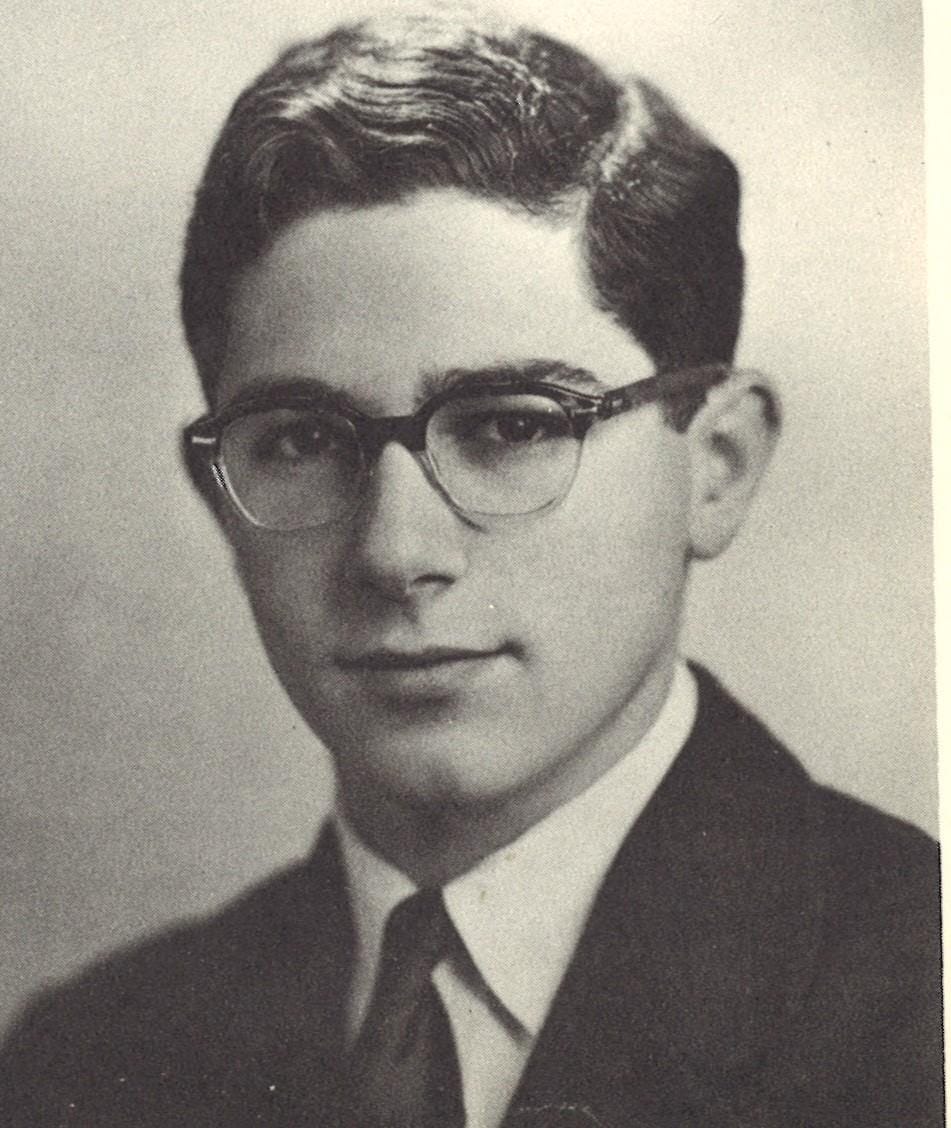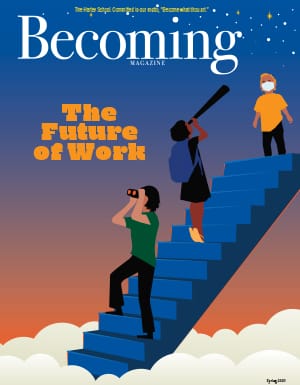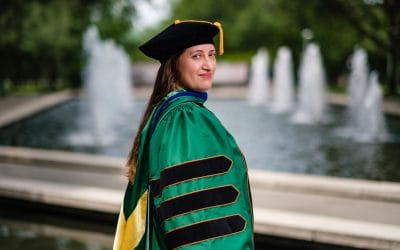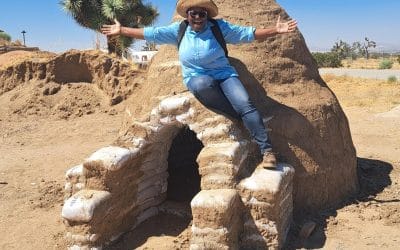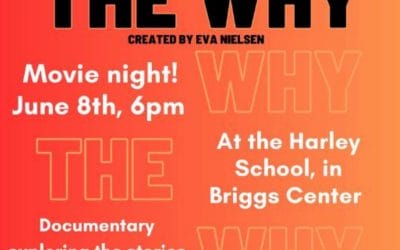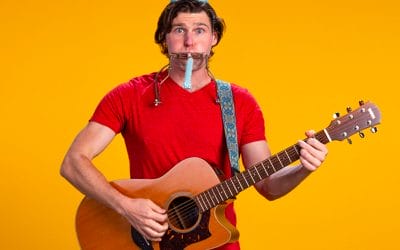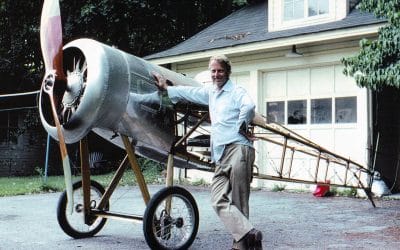1950s
John Goldman ’52 was thinking about his upcoming 70th Reunion from Harley and shared a great story.
John knows how to celebrate a birthday in style! When he celebrated his 80th birthday back in 2014, he “sold” all of his party guests a copy of a book that he wrote about his life—for 10 cents.
In the prologue to Johnny’s Journey he talks about why he wrote this book: “Perhaps I have a case of nostalgia. Most of us old people have it. As you age you discover that there’s a lot of it going around and that it’s highly contagious. You can catch it while watching old black and white movies on television where people wear the same clothes that you once wore and ride around in cars like those you and your neighbors had when you were a kid…But I think that it’s much more personal than that. I am intrigued with the idea of trying to reconnect with my early years…this will not be an autobiography. I am going to focus on my “extended childhood”—from birth to college. That’s the span of time that shapes most of our lives, mine included.”
John shared two particular chapters that Harley alumni might find interesting because they pertain to his time at the school.
If you are interested in reading it, John’s book is available at The Harley School library: https://www.harleyschool.org/alumni-news-john-goldman-52/.
Truman Bullard ’56 is a professor emeritus of music at Dickinson College and lives with Dr. Beth Bullard in Carlisle, PA. Both continue to enjoy the life and challenges of being freelance musicians and music lecturers.
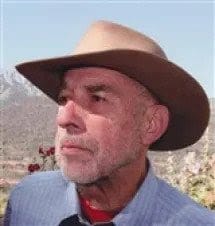
Following his winter break in Grade 11, Alan Staehle ’59, along with five other boys from the class of 1959, was asked not to return to Harley after a series of “stupid stunts” earlier in the year. Though he did not graduate from Harley, he is especially thankful for the influence of Bud Ewell ’40 (Math and Science, head of Lower, Middle and Woodworking 1952 to ’93):
“A favorite time for me was lunch time and the socialization involved, and I liked wandering Allen’s Creek. In class, I remember Mr. Ewell told me that a theorem I had used to solve a geometry problem didn’t exist, but then he went on to help me prove ‘Staehle’s Theorem’ and declared it useable by others in the class. (It was actually of very little use, but his support made me feel good.) I enjoyed all the science classes at Harley and think they were well presented for that day and age.
“I also watched Mr. Ewell give some special attention and support to a kind of ‘loner’ girl who was desperate to get into the Coast Guard. That was not something that would have been common in those days, but he encouraged her and I think made some inquiries on her behalf.
“Dr. Larry Utter (History, and head of school, 1930 to ’54) and I occasionally had to stop by his office. I felt he cared about the school and our success and enjoyed visiting with him, even if I was in hot water for something.
“Now, giving it some thought, I would guess Mr. Ewell became a role model for me in helping others solve problems and be successful in what they tried to do professionally. My father was a good person and a leader of many things, but as a scientist he didn’t have the opportunity to help others to the extent that it turned out that I was able to do, and to get satisfaction from doing so.”
Alan went on to pursue a career in police and public safety for more than 50 years. Much of his work was in criminal justice reform was in Colorado. He says one of the most successful jail program improvements was providing GED education for interested prisoners”
“Getting their GED really changed their self-image and helped keep them out of the justice system when they left us.”
Alan was featured in “Marquis Who’s Who” for his work: https://www.harleyschool.org/alumni-news-alan/.

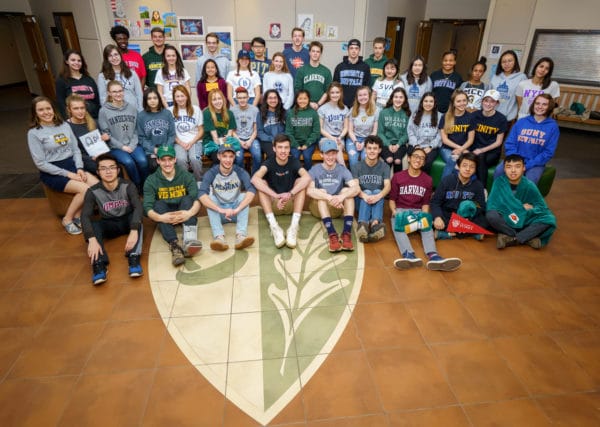 Harley’s Approach to College Counseling
Harley’s Approach to College Counseling “Club Rush” is an afternoon every fall in the Upper School when students have the chance to sign up for clubs for the year, and each year it is very different because new clubs are created based on student initiative and enthusiasm.
“Club Rush” is an afternoon every fall in the Upper School when students have the chance to sign up for clubs for the year, and each year it is very different because new clubs are created based on student initiative and enthusiasm. Each and every year, students at The Harley School participate in HAC Athletics, and their success continues to be impressive, both as students and athletes. Our athletic program is an integral part of Harley, teaching student-athletes invaluable lessons about teamwork, time management, persistence, and competition. Our program allows them to develop physically, mentally, socially, and emotionally as they represent their school on and off the field. They grow, mature, and work hard to be the best teammate they can, while creating lifelong memories with teammates who often remain friends for life.
Each and every year, students at The Harley School participate in HAC Athletics, and their success continues to be impressive, both as students and athletes. Our athletic program is an integral part of Harley, teaching student-athletes invaluable lessons about teamwork, time management, persistence, and competition. Our program allows them to develop physically, mentally, socially, and emotionally as they represent their school on and off the field. They grow, mature, and work hard to be the best teammate they can, while creating lifelong memories with teammates who often remain friends for life. 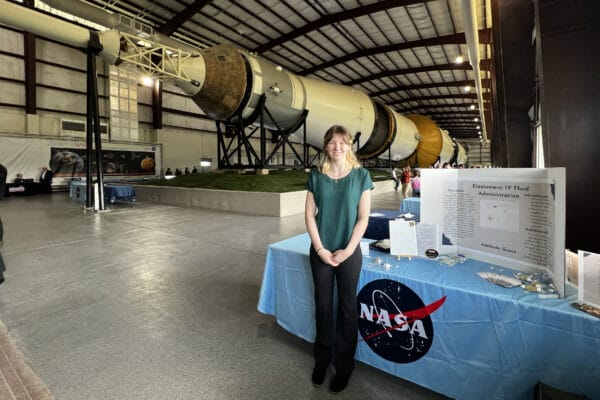 Our Upper School is filled with formal and informal opportunities for students to take on leadership roles. Whether following passions or learning new skills, student-driven opportunities take many shapes.
Our Upper School is filled with formal and informal opportunities for students to take on leadership roles. Whether following passions or learning new skills, student-driven opportunities take many shapes.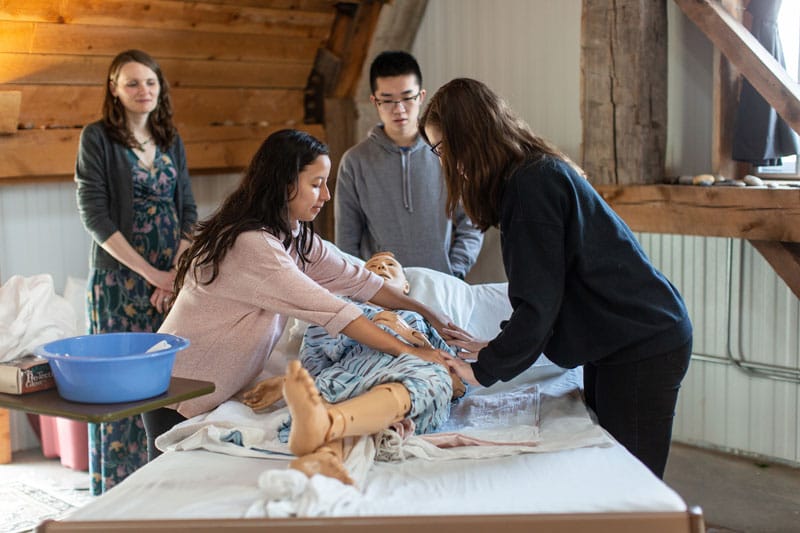 Unlike this class, death is not an elective. Although it is one of two universal human experiences, our culture often ignores, denies, or misconstrues the true nature of death and dying. What happens when we bear witness to this natural process in the cycle of life and develop our ability to be fully present with others when they need us more than ever? It has the potential to change us deeply and fundamentally while shining a brilliant light on the path of our own lives.
Unlike this class, death is not an elective. Although it is one of two universal human experiences, our culture often ignores, denies, or misconstrues the true nature of death and dying. What happens when we bear witness to this natural process in the cycle of life and develop our ability to be fully present with others when they need us more than ever? It has the potential to change us deeply and fundamentally while shining a brilliant light on the path of our own lives.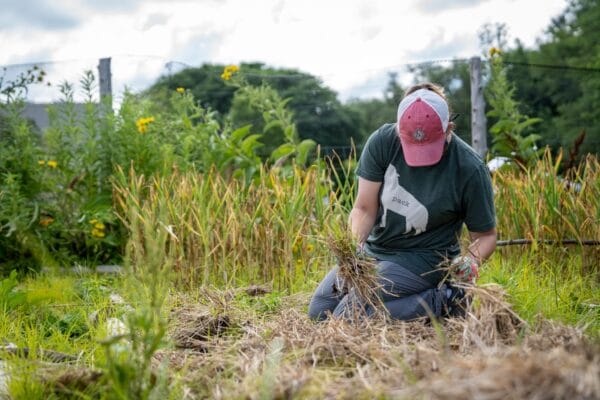 This program utilizes environmentally-focused approaches to education and hands-on learning in order to foster the next generation of leaders through a lens of sustainability and problem-solving.
This program utilizes environmentally-focused approaches to education and hands-on learning in order to foster the next generation of leaders through a lens of sustainability and problem-solving.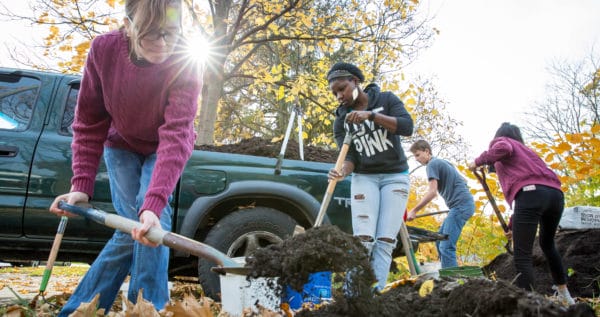 At Harley, our students learn how to evaluate social systems in order to identify complex problems in society through a lens of social justice. They take a hands-on approach to working for a fair, equitable society by researching, exploring and evaluating different perspectives, and offering solutions—both theoretical and practical.
At Harley, our students learn how to evaluate social systems in order to identify complex problems in society through a lens of social justice. They take a hands-on approach to working for a fair, equitable society by researching, exploring and evaluating different perspectives, and offering solutions—both theoretical and practical.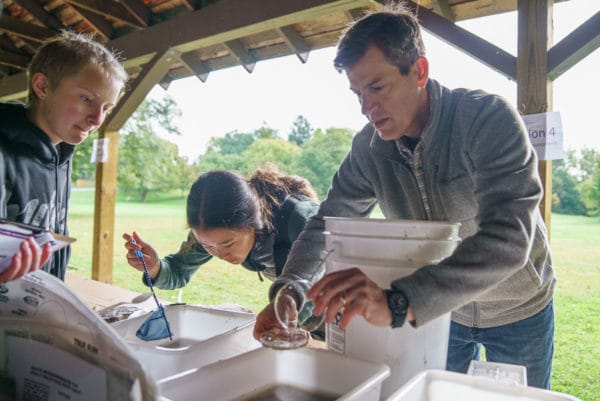 Students may create independent studies with supervising teachers throughout their Upper School experience or, during Grade 12, they can design Capstone projects—intensive collaborations with Harley faculty and off-campus mentors—involving rigorous academic study and culminating in public presentations.
Students may create independent studies with supervising teachers throughout their Upper School experience or, during Grade 12, they can design Capstone projects—intensive collaborations with Harley faculty and off-campus mentors—involving rigorous academic study and culminating in public presentations. 
